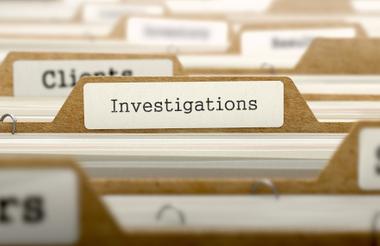There is more focus on investigation now than there ever has been. Trustees must ensure their charity is accountable, open and transparent, and that it acts with integrity. The proper performance of these duties will inevitably require investigation where concerns are raised, to find out what has happened.
The Charity Commission doesn’t define what is meant by an investigation and there is no universally adopted definition of one. To my mind it is simply a fact-finding exercise, and unless the law or the charity's own procedures require otherwise, there is considerable flexibility about what it should entail. It may be a paper-based exercise, involve interviews of those involved and other witnesses, and/or follow an external process, such as an inquest or statutory inquiry.
Whatever the type of investigation, it must be fair and there are some standard principles which will help to ensure this.
1. Are there any preliminary issues to manage?
The charity has a duty to protect people from home and as a starting point support should be offered to those involved. Relevant evidence, such as faulty equipment, photographs or screen shots should be preserved. The charity should consider its reporting obligations and before commencing the investigation be clear that it is authorised to do so (rather than this being led by the police or another body). Trustees should also ensure they fulfil their regulatory reporting obligations, many of which will require reports to be made without delay.
2. Commission the investigation carefully
Consider who can and should make decisions about the nature and scope of the investigation and who will undertake it. These decisions should be taken by people who are unconflicted: not only should they not be the subject of any complaint or allegation being made, nor have been directly involved in the management of the issues, but they should not have personal conflicts of interest or loyalty. This will help to demonstrate that the matter is being treated seriously and will help to avoid perception of bias or cover up.
The purpose of the investigation needs to be considered carefully so that those commissioning it are clear about when and why the investigation is needed and which regulatory framework(s), policies and procedures will apply. They should also consider what output they expect and how the outcome will be shared at the outset, as these decisions will help to frame communications and manage expectations.
3. Set terms of reference
We would always recommend written terms of reference - an email to the investigator (to then be shared, as appropriate, with those involved) may be all that is needed to set out what is to be done and the relevant process(es). This will help to ensure a fair process (as the terms will help those involved to articulate the expected nature and scope of the investigation) and manage ‘scope creep’.
4. Ensure the investigator is suitable for the role
The investigator should also be unconflicted and have the right skills and experience to perform the role required.
Their role can vary markedly: from an initial fact-find about the circumstances - to determining what is likely to have happened, whether this constitutes a breach of duty by the charity or persons involved and possibly involve imposing sanctions too.
Sometimes the scope of the investigator's role will be set in advance (for example in employment cases where practicable, different people should carry out the investigation and disciplinary hearing).
The investigator should be able to balance the need for appropriate sensitivity with the robustness required to properly explore factual discrepancies: it will be helpful if they are used to working as a critical evaluator. They must also have the time and resource to report within the requisite timescale.
5. How much should you spend?
Investigations should be reasonable and proportionate. Determining how much resource to allocate to an investigation will involve a careful balancing exercise to ensure that enough is committed to do a proper job and not so much as to over-commit the charity.
6. Should the investigator be internal or external?
A question we are often asked is whether an investigator should be internal or external. This will depend on the circumstances. Matters which may involve allegations of systemic or cultural mismanagement may be better investigated, not just externally, but entirely independently.
7. Record the details carefully
The outcome should always be recorded and may involve the need for more detail, sometimes requiring a formal report, appending evidence. It is important that the charity not only records the findings, but also the reasons for decisions made about the investigation.
Tabitha Cave is a partner and dispute resolution solicitor at VWV
Related articles











